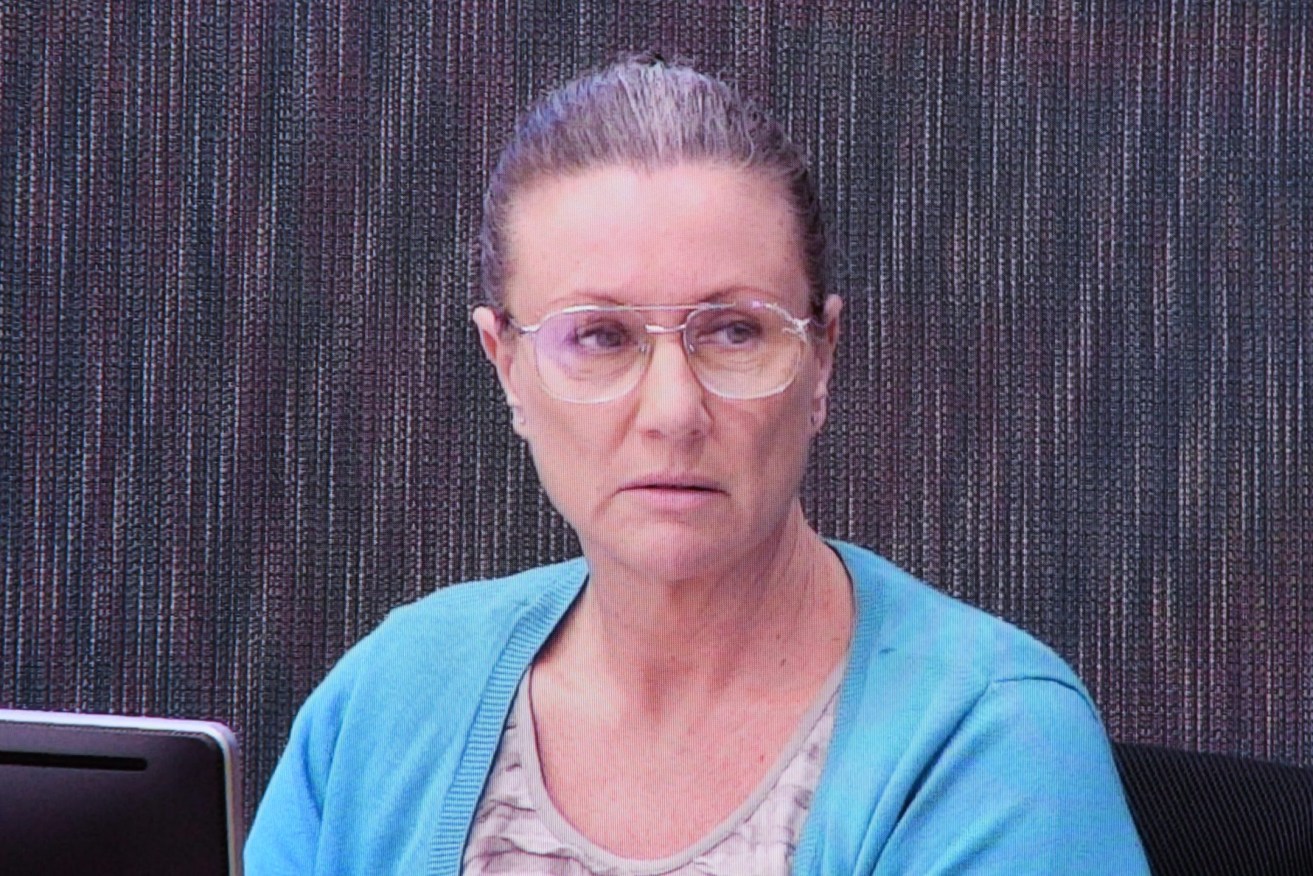She was Australia’s ‘most hated woman’ – now our top scientists want child killer Kathleen Folbigg freed
Australia’s most eminent scientists are calling for the release of NSW woman Kathleen Folbigg, saying there’s compelling evidence she is innocent of her conviction as a child killer.

Kathleen Folbigg appears via video link during a convictions inquiry at the NSW Coroners Court in April 2019. The NSW Government will conduct another inquiry into her guilt. (AAP Image/Peter Rae)
Folbigg, now 53, was jailed in 2003 and is serving a 30-year sentence for murdering her children Patrick, Sarah and Laura, and for the manslaughter of her son Caleb.
However, a petition signed by 90 scientists says new medical discoveries point to compelling evidence the children died from natural causes.
New research identified a mutant gene that was carried by two of the Folbigg children that could have led to their deaths.
The list of petitioners reads like a who’s who of Australia’s most elite scientists including: president of the Australian Academy of Science John Shine, Nobel laureate Professor and former Australian of the year Peter Doherty and Nobel Prize prize winner Emeritus Professor Elizabeth Blackburn.
Former Australians of the year Professor Fiona Stanley and Professor Ian Frazer – who invented the cervical cancer vaccine – and former chief scientist Professor Ian Chubb, have also signed the petition.
Reports by science publication COSMOS backgrounds the breakthroughs they say shifts the weight of evidence in the case, leading to a petition being sent to NSW Governor Margaret Beazley asking for Folbigg to be pardoned.
The prosecution argued Folbigg smothered her children but scientific discoveries now throw into question that conclusion, they say.
Publisher of COSMOS Ian Connellan said “this long list of incredibly learned and eminent Australians is demanding justice be served”.
“It may also prove to be pivotal, in the way our courts are geared to accept peer-supported scientific evidence, including relatively new discoveries, especially when pitted against otherwise circumstantial details.”
Folbigg was convicted on circumstantial evidence from her diaries, with the prosecution arguing it was unlikely four of her children could die suddenly and unexpectedly in their sleep.
But forensic pathologists raised concerns over the medical evidence and in March 2019, there was a judicial inquiry into Folbigg’s convictions.
The children suffered from a series of conditions before they died: the first boy, Caleb, had difficulties breathing since birth; the second, Patrick, suffered epileptic seizures; and girls Sarah and Laura had respiratory infections only a few days before their deaths.
Scientists say these conditions suggest that if there was a single underlying natural cause it was likely to be genetic, with a broad spectrum of manifestations and lethal triggers.
An international team of scientists embarked on a study to find the culprit and hypothesised that rare inherited genetic variants could be responsible for the cardiac or respiratory disorders behind the children’s sudden deaths.
Professor Carola Vinuesa, from the Australian National University, said the team sequenced Kathleen Folbigg’s whole genome.
“There was a chance that Kathleen herself might be carrying one of these variants, because they tend to be inherited,” Professor Vinuesa said in a statement.
It’s not uncommon for some variants that cause sudden death in children to remain silent in some individuals – some can carry the mutation but grow up as a healthy adult.
“So Folbigg could have been carrying these mutations and passed them on her children.
“It was a bit of a long shot,” Prof Vinuesa said.
They found two of her children had an underlying condition or a mutated gene that meant they could all have died of natural causes.
They found the children had a condition that could cause an improper heartbeat – irregular, too fast or too slow – that can cause sudden cardiac death in children.
“If you do not take genetics into account, it would seem an exceptionally rare scenario to have four natural deaths in a family,” Prof Vinuesa said.
“Actually it isn’t.”












